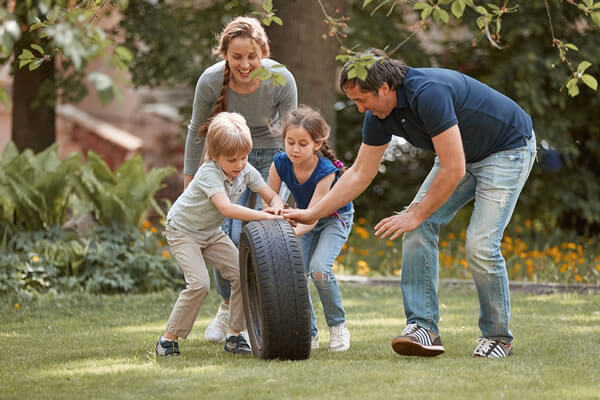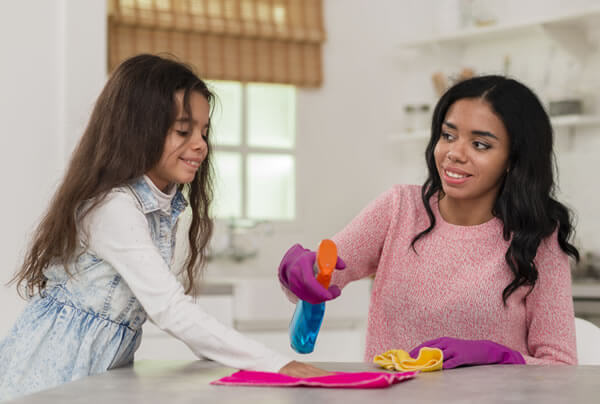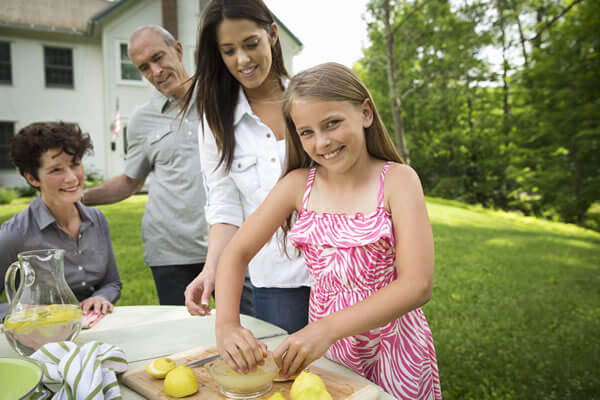6 Tips To Getting The Most Out of This Summer For Your Kids
”Summer has a flavor like no other. Always fresh and simmered in sunshine.” ~ Oprah Winfrey
When I was a kid, a typical Summer day involved me jumping on my bike after breakfast to explore; maybe I’d head over to a friend’s house or to the wooded park near my house with a group of buddies, or perhaps I’d catch up with another group to play a sport. My friends and I would spend full days outside creating great times. And when the sun would begin to lower, I remember doing whatever I could to keep the day and the excitement going; if I had some change in my pocket, rushing to hit 7 Eleven across town for a Slurpee and some sugary bubble gum with others before peddling home as fast as possible for dinner was a nice treat.
Okay, okay, so it’s not the 1970’s anymore, and perhaps my recollection of my childhood Summer days is overly idyllic; after all, it’s human nature to romanticize our past, and every generation likes to think their times were the best times. My main point here is not that things were better for children in the past, but in many ways they were easier. Today’s children have so much to contend with, and knowing how to simply be in the moment to have fun can be a challenge. Today’s parents are also tasked with so much during the Summer — managing balanced technology use, busy schedules, camps, sports teams, play dates, Summer vacations, meals, sleep overs and other extracurricular activities. Being on top of things as a parent is easier said than done, especially since the majority of parents both work full-time these days.
So, with Fourth of July upon us, Summer has arrived. Here are 6 tips to consider to ensure your child has a great Summer.
Create a roadmap for each day for your child. Sure there’s a lot of down time for your kids with school being out, but children and teens do better with a schedule. A schedule gives your child a voice and some agency in terms of how they spend their time and what activities they participate in. For younger kids, the schedule can be a visual aid on paper, and you can even break it down into three parts – morning activities, daytime activities and evening activities. For older kids and teens, talking through the day the night before or in the morning might be better. When you help your child or teen to manage their time and activities, you’re supporting planning skills, problem solving skills and time management skills.
Get your child outside. Research has shown that children who spend time outside, especially social time with their peers, have lower rates of all sorts of problems such as ADHD, anxiety, depression, social struggles, obesity and screen time/technology use struggles. While many children enjoy being outside, some are not comfortable with that idea for different reasons (e.g., technology over use, social weaknesses, anxiety, etc.). So, as parents, you may need to help your child or teen to think about all the fun things they could be doing outside on a beautiful Summer day and then support them to follow through.
Support structured and unstructured activities for your child. Structured activities help children to learn rules, to set goals and to work on their social skills. Whether your son or daughter attends camps or is on a sports team, those structured moments aren’t just fun, they also facilitate social, emotional and mental growth. Unstructured activities are also good for children in so many ways; they can serve to foster imagination and creativity, build confidence, increase problem solving skills, and help to support social and emotional growth. So, the next time your child exclaims, “I’m bored,” help them to get out of that negative space to see all of the things they can create and do for themselves. As parents, we don’t want to over schedule or under schedule our children; instead, finding a balance between structured and unstructured activities is the best scenario.
Give your children chores. Regardless of your children’s age, they need to know that not every day is a party and not every week is beach week. During the Summer (and the school year), children benefit from being responsible for themselves and helping. Although your child may find this hard to believe, research in this area has found that children with chores are generally happier than children who do not have chores. Children who do chores at home also tend to do better academically and socially.
Spend time with your children. You don’t need to be a millionaire to have a great Summer, and while children can become overly focused on materialistic things, what they want most from us as parents is our time and attention. A pool is a pool, so whether you’re at a fancy resort, or at the neighborhood or community pool, the positive time you spend together is a big part of the joy your children experience in those moments. And research has shown that children who eat three or more meals a week with their family do better academically and have lower rates of social and emotional struggles. So, in support of your kids, jump in the pool, go on some outings, break bread together and enjoy family time this Summer.
Support your child’s academic growth. Just because it’s Summer doesn’t mean your child can’t crack a book or stretch himself or herself cognitively. Going to the library or a bookstore to pick out a few good books for the Summer, doing some subject review with your child, getting some tutoring, or planning some culturally rich activities that stretch your child intellectually (e.g., visiting some museums, traveling) are some good ideas.
Have a great summer!













Michael Oberschneider, Psy.D. “Dr. Mike” is a clinical psychologist in private practice.
He can be reached at 703-723-2999, and is located at 44095 Pipeline Plaza, Suite 240, Ashburn.
